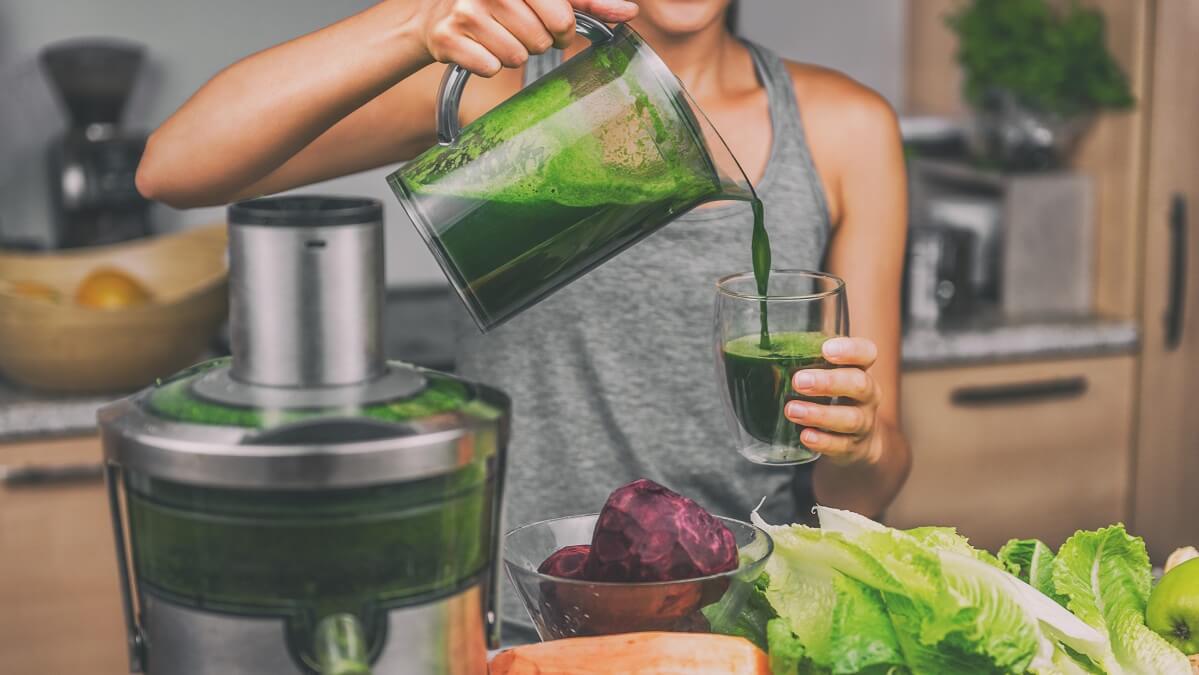From juice fasts to colon cleanses, detoxing is supposed to flush toxins out of your system and ‘reset’ your body. But is a detox as healthy as you’re meant to believe and should you do one?
Detox diets are popular, but there is not a lot of scientific evidence to support their supposed benefits. A detox diet usually consists of consuming only liquids, eating certain foods, or avoiding certain food groups in order to eliminate toxins from your body. They are usually touted as a quick way to kick-start a healthy diet change or aid weight loss.
Cleansing the body of toxins is also said to reduce the risk of disease and promote the feeling of overall good health, radiant skin and boost energy. However, the practice of detoxification may actually cause more harm than good.
What kinds of detox diets exist?
There are many ways you can detox, including:
- juice cleanses
- colon/liver cleanses
- raw food diets
- fasting diets.
Most of these diets have a few things in common: they are short term and aim to eliminate allegedly toxic substances from the body. Typically, these diets include a period of fasting followed by an extremely restrictive diet for a number of days.
Toxins in the body
Our bodies do create and absorb toxins, but it is designed to cope with exposure to certain toxins.
Internal toxins include natural by-products created by the body during metabolism, such as lactic acid, urea and waste from the gut microbes.
External toxins, including chemicals and heavy metals, enter the body through eating, drinking, breathing or penetration of the skin.
The body has an in-built detoxification process that consists of the liver and kidneys, with assistance from the lungs, lymphatic system, digestive tract and skin. This process works to break down any harmful substances and expel them from the body.
But sometimes, this system doesn’t function optimally. That’s why it’s important to maintain a healthy diet, get adequate exercise and sleep, and make sure your microbiome is diverse and has an abundance of beneficial bacteria. Eating fermented foods such as kefir, sauerkraut and cultured dairy products can help to improve your gut health and these probiotic-rich foods can help to remove toxins from your body.
The risks of detoxing
You may have seen the claims that detox diets and juice cleanses lead to weight loss, improved liver function and overall better health. However, research shows they have little to no effect on these things.
Of all the detoxing methods, juice cleanses and fasting diets offer the least benefit, especially to those with medical conditions. This is because they deprive you of vitamins and nutrients your organs need to function well and for you to feel good – both of which detoxing diets aim to do. Perhaps you’ll lose weight, your skin will clear and you’ll feel ‘lighter’ for a time, but once you return to a regular diet, all this is likely to change back.
Also, these diets can lead to side-effects such as headaches, fatigue, weakness, fainting and irritability.
If you have diabetes or issues with cholesterol, a detox diet can be harmful. There is little research showing that detoxing helps improve blood pressure or cholesterol. Any diet that requires you to severely restrict what you eat can lead to very low blood pressure, which is especially dangerous if you’re on medication for diabetes.
Add foods instead of removing them
Research has found that certain foods and spices, such as coriander, may be able to help the body’s natural detoxification process. Other foods that may give a boost to the body’s detox system include cruciferous vegetables (such as broccoli and Brussels sprouts), berries, artichokes, garlic, onions, leeks, and green tea. Eating lean protein may also help to maintain adequate levels of glutathione, which is a key enzyme involved in the detoxification process.
So, is a detox diet the answer?
No, research shows that there is little evidence to support detox diets and your body is designed to expel toxins on its own.
Detox diets and programs can be dangerous, especially those that involve laxatives, enemas, or severely limiting certain foods or food groups. These diets can cause dehydration, nutrient deficiencies, and electrolyte imbalances, and often don’t result in sustained weight loss.
Maintaining a healthy lifestyle is key to feeling your best. To start, aim to eat a balanced diet full of wholegrains, lean proteins, fruits and vegetables of many colours, low-fat dairy, nuts and seeds. It’s important to stay hydrated too, making sure you are drinking enough water every day.
Also, move your body in a way that you enjoy. The more you enjoy being active, the more likely it will become a routine. Aim for at least 150 minutes, or 2 1/2 hours of moderate-intensity physical activity every week.
Focusing on these types of long-term, sustainable healthy habits is the key to weight loss and overall health and wellness.
Have you ever done a detox diet? How was your experience? Let us know in the comments section below.
Also read: ‘Detox’ or ‘juice’ diets are risky for heart health, experts say
Disclaimer: This article contains general information about health issues and is not advice. For health advice, consult your medical practitioner.

